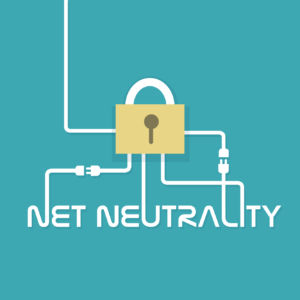House Democrats introduced a three-page net neutrality bill yesterday restoring the 2015 Open Internet Order, but it’s more a symbolic political statement than a legitimate attempt at legislating net neutrality. Republicans likely won’t pass it.
The Progressive Policy Institute (PPI) even released a statement rebuking Democrats for their political showboating.
“[Democrats] today unveiled a bill that will only continue to delay real action on net neutrality,” they said. “Congress last passed significant legislation on our communications networks in 1996 and this new proposed bill is a continuation of the D.C. game of rhetoric and no action as this bill has no chance of passing Congress.”
Two weeks ago, three House Republicans introduced three of their own net neutrality bills that would reinstate important net neutrality protections without restoring the Federal Communications Commission’s 2015 Open Internet Order, based on Title II of the 1934 Communications Act.
They urged Democrats to collaborate with them, but said basing net neutrality rules on the decades-old Title II is a mistake, which means the Democrats’ Save the Internet Act probably won’t pass the Republican-controlled Senate, or, if it does, President Trump will likely veto it.
“[We can] protect consumers without the heavy hand of Title II, which would give the government unbridled power to tax the internet, institute costly fees, set prices and terms of plans and even take control of assets,” House Republicans wrote in the Feb. 21 letter. “These powers will not provide more protections for consumers, but would punish consumers through higher costs, fewer choices and less innovation.”
Many Democrats think the Republicans’ net neutrality bills are too weak, which is why they’ve introduced the Save the Internet Act.
The bill, sponsored by Rep. Mike Doyle (D-Penn.), also prevents the FCC from repealing or amending them ever again. This is probably the most effective part of the bill: it would at least end the net neutrality debate.
“Supporting this bill means supporting our democracy, ensuring that the voices of the public are heard, their will is respected and the internet remains free and open to all,” House Speaker Nancy Pelosi (D-Calif.) said at a press conference for the bill on Wednesday.
According to Evan Greer of the net neutrality advocacy group Fight for the Future (FFTF), the Save the Internet Act is the only legitimate net neutrality bill in Congress.
“They’ve introduced three separate pieces of ‘trojan horse’ legislation in a cynical attempt to muddy the waters and confuse the public. But we won’t be fooled, and neither will the hundreds of millions of people who we’ve mobilized to fight for real net neutrality,” she said. “Put simply, the Save the Internet Act is the only real net neutrality bill out there.”
Net neutrality advocates say “millions” of Americans support net neutrality, and Public Knowledge cited a poll claiming that 86 percent of Americans opposed the repeal of net neutrality, including 82 percent of Republicans and 90 percent of Democrats.
But polls on voter issues never find net neutrality or any other tech-related issue in the top five concerns for the average American voter. In fact, the top three issues are usually healthcare, jobs and national security. Furthermore, a 2015 PPI study found that the average American voter can’t articulate what net neutrality is.
“It’s not enough to hold press conferences and introduce message bills – American consumers deserve effective action that actually solves the problem of net neutrality,” Progressive Policy said in its March 6 statement. “The backward-looking poison pill approach we have seen so far only makes it harder to achieve. Hopefully, Democrats and Republicans in the House and Senate will work together moving forward on changes to this legislation that can get us over the finish line and deliver a lasting solution on net neutrality – not just more talking points and fundraising emails.”

